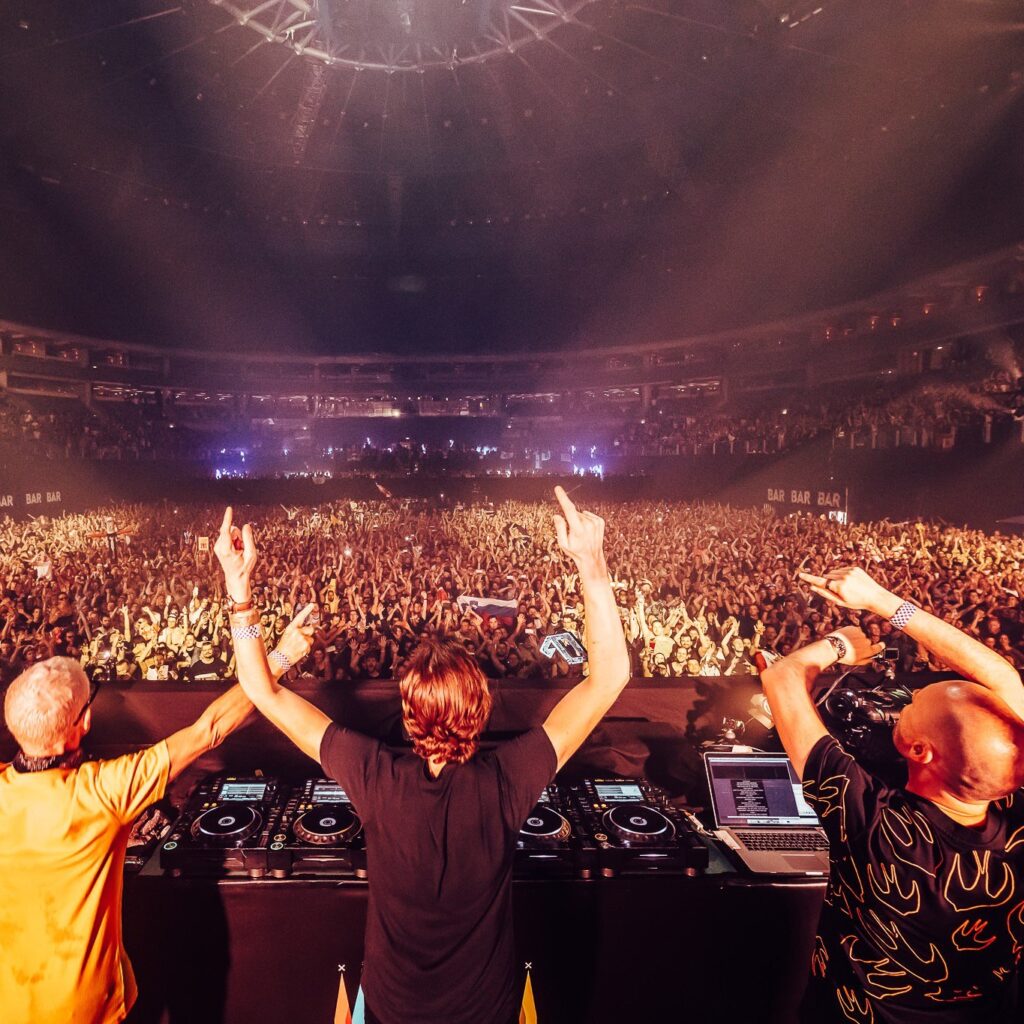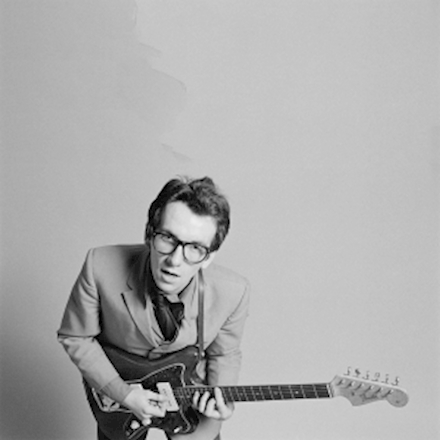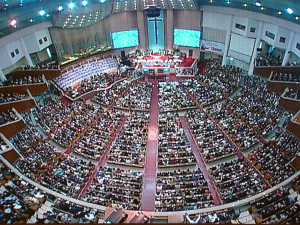A few days ago I posted a dubstep remix of a song by a group called Above & Beyond. I was curious about their “music,” so I checked into them, finding several of their “concerts” posted on YouTube.
You might notice that I used quotation marks around the words “music” and “concert.” I did that because it turns out Above & Beyond aren’t really a music group. I mean, they are, but, not really. Not in the traditional sense. Above & Beyond are a group of three DJs from Britain.
And they are talented. It’s just that their talents tend more to be toward creating and mixing electronic sounds. This is by no means easy.

But what struck me about the “concert” I watched was…well, just about everything. It started out kind of normal. The crowd (I’m no expert, but it had to be well over 10,000) was pumped up. The “stage” (?) was…there? There were flashing lights and the typical atmosphere you’d expect.
And then the group came out. They ascended the steps to a kind of pulpit where the crowd could only see their upper bodies. And the music pumped out, the lights flashed, and the fog machines did their work. One of the group typed messages that flashed on a bar right below their platform. Messages of “peace” and “harmony” and “love.”
And it was all so religious. I sat there puzzling it over for a while. I thought, “How could God compete with this?” It was checking all of the boxes. The music was hitting the beats, the crowd was frenzied, the lights, the messages, everything appealed to the pure senses and emotions of the moment.
But it was also so vacant and meaningless.
I’d read somewhere that Jonathan Edwards – considered to be one of America’s greatest preachers and intellectuals – would simply read his sermons to the congregation. He feared that injecting too much emotion into his delivery would unduly affect the responses of those who listened. I don’t know if that’s entirely true, but it makes the point: how much of our faith is fed by our emotions? I could see in the Above & Beyond video that you can easily turn masses of like-minded people to an experience of worship and joy just by giving them the right conditions. In some respects, it looked like some of the Christian worship services and concerts I’d seen. There were people in the crowd with the same upraised hands, and the music; the lighting; the fog machines – all of these things made me wonder about the state of the Christian music spectacle at some churches. How could those who attend know whether that flush of energy they were feeling was the Holy Spirit or just the adrenaline from being so pumped up by the band?

And so to the question, “how can God compete with that?” you have to look deeper. Beyond the obvious – because he’s God – the answer lies in the depth of our worship’s meaning. To those at the Above & Beyond concert, they looked inward. The messages of peace and love were about what they could feel and do within themselves. I’ve written about something like this before. And it still holds true, even for the secular: their actions were legalistic and emotional – what rules can we follow to feel better about ourselves? If I love everyone, I feel a warmth in my heart and I feel good about myself. I exalt my humanity. I am the captain of my fate.
And yet, how does this stack up against the reality of the world? Can we all love each other and get along? Well, the answer is quite simply, “no.” We are indeed emotional beings, but in addition to that, we are also quite selfish. I pound this point quite often – when emotional and selfish beings interact, there will always be “winners” and “losers,” but I’m saying too that without the objective standard of what the true “winner” is, there are never “winners,” but only “losers.”
Here’s something we don’t – we can’t – realize about ourselves: that without the grace of God, we are all on the wrong side of the equation. No amount of “worship” without God has meaning other than to satisfy and serve ourselves.
And so you have the huge light shows and fog machines and pounding music that are all so visually appealing and emotionally satisfying…and it all means absolutely nothing. We partake, and then we go home to continue being the self-centered people we are. The overall push for peace, love, and understanding barely moves the needle in the end. This is human nature.

But it’s rife within the Church too.
While congregations spend hundreds of millions on buildings and facilities and equipment – all the more to impress on the visual and emotional plane – they scorn their true purpose. I far too often hear my two least favorite words when some in the church called out for their unchristian behaviors: “Yes, but….” They acknowledge that the criticisms are true, but they’re intent on ignoring them anyway.
I once heard a pastor say, “The church stretches as wide as an ocean, but is only an inch deep.” I live in a place that has several of the world’s largest churches, with congregations that number in the hundreds of thousands. You would think that a community of 480,000 (the largest church in the world) could work miracles in the streets of the city in which they live, but what do we get instead? We get their lead pastor and his son convicted of embezzling $12 million.

This is because people are flocking to the church for what they can get out of it – what boxes it checks; what buttons it presses. And when you’re coming for what you can get, you seldom consider giving back.
This isn’t just about the church in Korea either. Not by a long shot. There are more than a couple high-profile churches elsewhere whose focus is not serving the poor but getting the “right” people in the door. And so they pay close attention to the experience of church and not the mission. It’s no wonder then that people think the church is there to serve them. They’re getting their itch scratched, why would they expect that something be asked of them?
They may as well be at an Above & Beyond concert.
